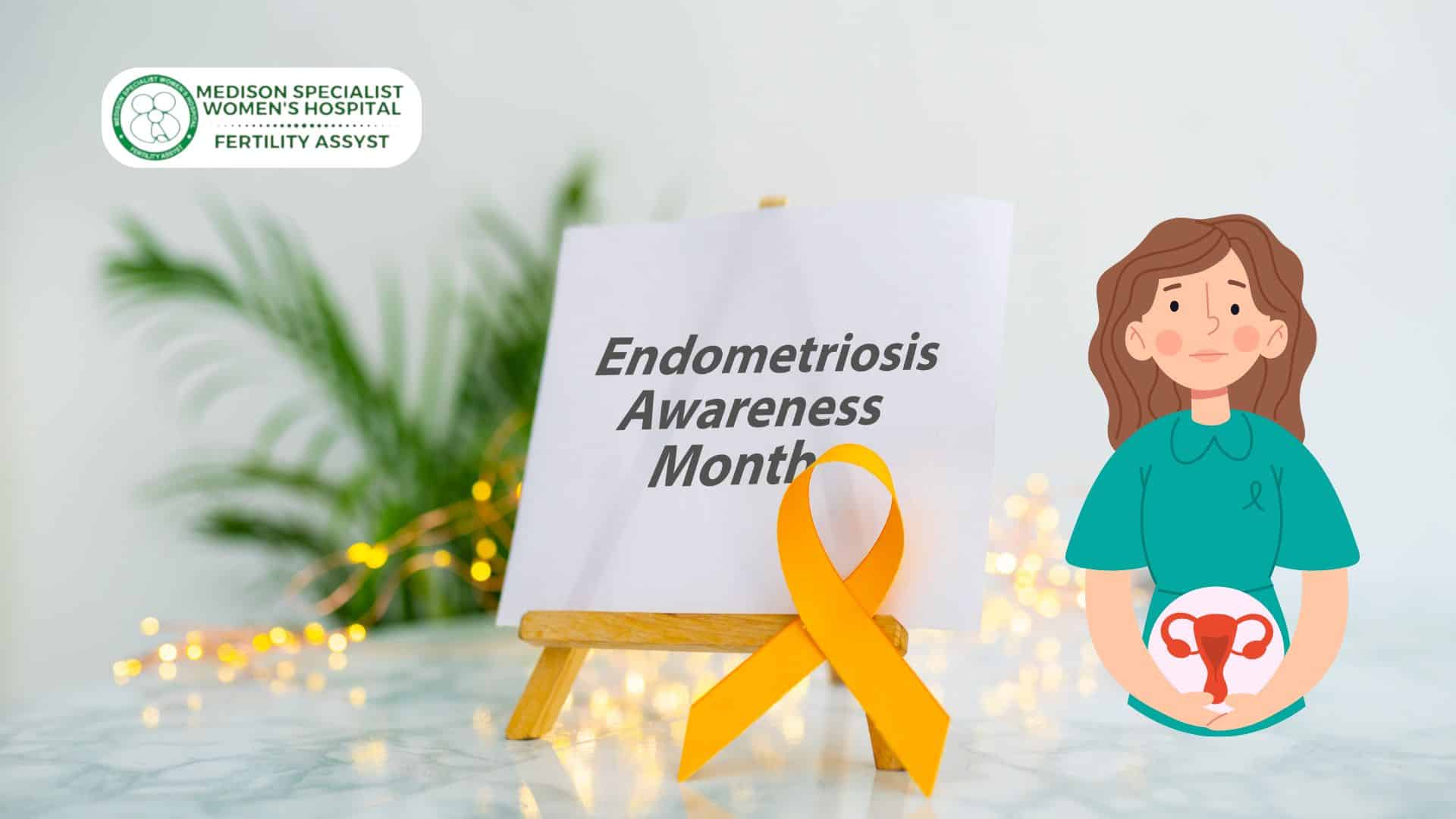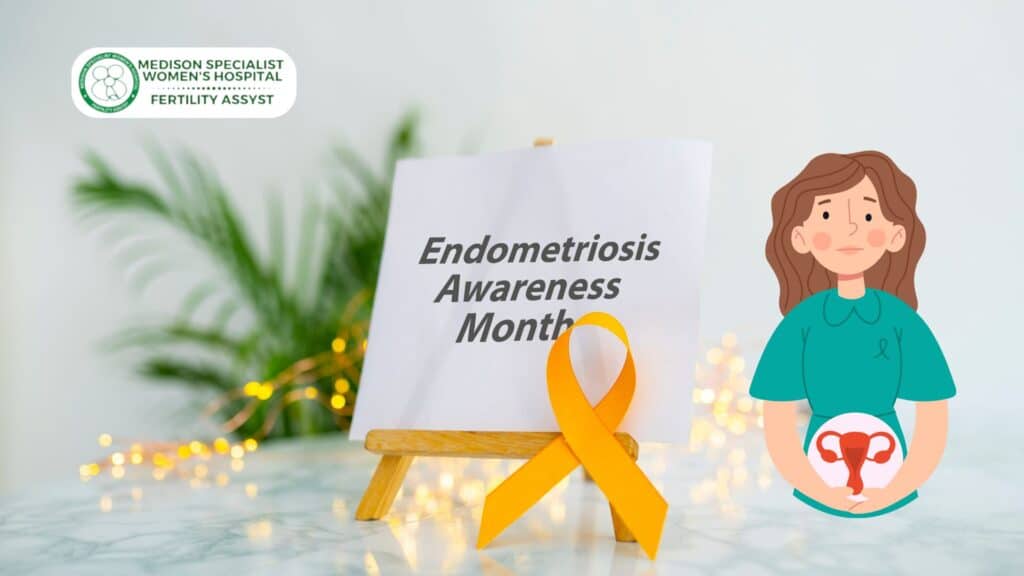Endometriosis Awareness Month: Know the Signs and Symptoms
 Endometriosis is a condition where tissue similar to the lining of the uterus (endometrium) grows outside the uterus. This misplaced tissue behaves like the normal lining, thickening, breaking down, and bleeding each menstrual cycle. However, unlike the endometrial tissue inside the uterus, which sheds and exits the body during menstruation, the trapped endometrial tissue outside the uterus cannot escape. This can cause inflammation, pain, scar tissue formation (adhesions), and other health problems.
Endometriosis is a condition where tissue similar to the lining of the uterus (endometrium) grows outside the uterus. This misplaced tissue behaves like the normal lining, thickening, breaking down, and bleeding each menstrual cycle. However, unlike the endometrial tissue inside the uterus, which sheds and exits the body during menstruation, the trapped endometrial tissue outside the uterus cannot escape. This can cause inflammation, pain, scar tissue formation (adhesions), and other health problems.
Endometriosis is a common condition, affecting up to 1 in 10 women of reproductive age. Unfortunately, it often goes undiagnosed for many years because some women experience mild or no symptoms. However, for others, endometriosis can cause significant pain, heavy periods, and even infertility.
Here are some of the most common signs and symptoms of endometriosis:
- Painful periods (dysmenorrhea): This is the most common symptom of endometriosis. Pain may be severe and can start a few days before your period and last for several days afterward.
- Pelvic pain: You may experience chronic pelvic pain throughout your menstrual cycle, not just during your period. This pain can be dull or sharp and may worsen during bowel movements, urination, or sexual intercourse.
- Heavy periods: You may have weighty periods with excessive bleeding.
- Painful sexual intercourse: Endometriosis can cause pain during or after sexual intercourse.
- Infertility: Endometriosis can sometimes contribute to difficulty getting pregnant.
- Other symptoms: Endometriosis may also cause fatigue, bloating, nausea, and diarrhea, especially during your period.It’s important to note that not every woman with endometriosis will experience all of these symptoms, and the severity of symptoms can vary greatly. Suppose you are experiencing any of these symptoms, especially if they interfere with your daily life. In that case, seeing a doctor to get a diagnosis and discuss treatment options is important.
Early diagnosis and treatment of endometriosis can help to manage symptoms and improve your quality of life. If you suspect you might have endometriosis, talk to your doctor at The Medison Hospital. We can help you get the answers you need and develop the right treatment plan for you.

